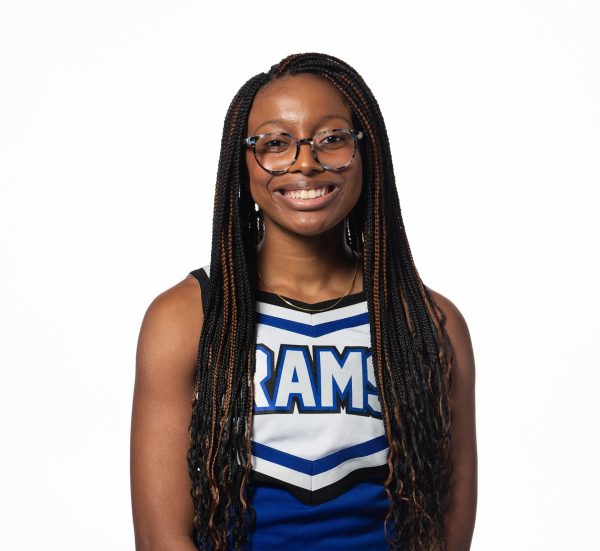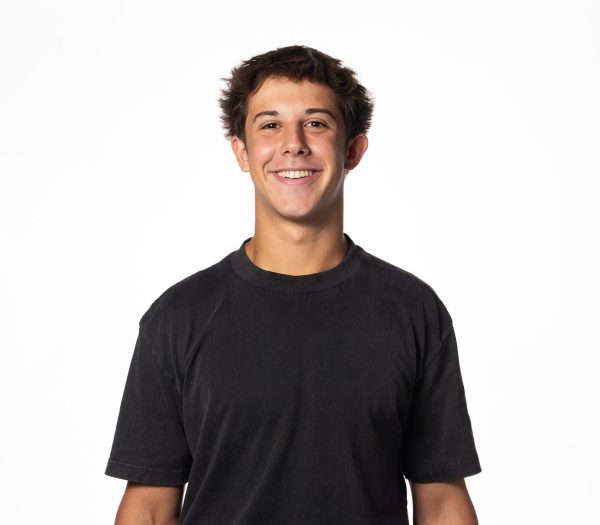To most, the origins of coffee is a mystery. But the most common belief is based on the story of a goat herder named Kaldi, who ate berries from an obscure tree in the ancient coffee tree forests of Ethiopia. After eating the berries, Kaldi experienced the power of caffeine. This discovery led to the worldwide obsession, adding a step to everyone’s morning routine. In America, some may buy their caffeinated companions from Starbucks, others Dunkin’ — but some buy their coffee from Junior Java, a business founded by junior Noah Temple November 2019.
“I was in my seventh grade history class,” Temple said.“We were learning about imperialism, and [how] children in other countries don’t have the same access to education as children do in America. It just didn’t sit right with me throughout the whole lesson. I felt really bad and guilty, especially with the great education that we have here in Ladue, so I wanted to figure out a way to change it.”
Temple’s desire to assist those in need led him to create Junior Java, with the mission of improving disparity he saw across different communities.
“Junior Java is a social enterprise in specialty Coffee and Tea Company, [which] helps bring education equity to children across the world,” Temple said.“We do that by donating a portion of every bag of coffee and tea we sell. So, with every bag, $5 worth of school supplies is given to children in need around the world.”
With Junior Java’s commitment towards assisting the disadvantaged populations, the business has been successful in helping various areas.
“So far, we’ve been able to donate just over around $2,500 worth of school supplies plus $500 to the youth ministry,” Temple said. “We’ve donated $50 to the Ladue Education Foundation and 200 meals to Saint Louis Area Foodbank.”
Building on this promising start, Temple has big ambitions for the future. Junior Java is partnered with World Vision, a humanitarian organization helping children, families and their communities overcome poverty and injustice. When Junior Java donates money, World Vision multiplies the amount through government grants. They have donated with World Vision since the beginning.
“One of our main goals is raising a million dollars worth of school supplies,” Temple said.
Besides the donating portion of Junior Java, Temple is active in his personal environment.
“For 2024, we’ve been doing a weekly Junior Java cafe at my church,” Temple said. “So every Sunday, I’ll serve specialty coffee and tea and also hot drinks and stuff, and be able to not only be able to help with the school supplies mission. I also get to donate a portion of the proceeds to our youth ministry at the church.”
Dawit Muluye, a junior alongside Temple is Temple’s friend and the content creator for Junior Java, is dedicated to the company’s mission of giving back.
“It is really beneficial for everybody because it’s beneficial for the kids,” Muluye said. “It’s beneficial for the consumers, it’s beneficial for everybody in general. It’s helping the communities that are in need while supporting small businesses and giving customers coffee.”
Adam Esayas, Temple’s friend who helps him with Junior Java finances a recent employee, believes in the sentiment that Junior Java was born from.
“I think Junior Java is really good,” Esayas said. “It has a good motive behind it and it’s just unique as a young kid to start this up.”
Ambition is the name of the game for Temple and Junior Java, as they aspire towards bigger goals. Junior Java is creating a program called Coffee Kids, aimed to help middle school students learn about business endeavors. Coffee Kids are taught how to grow their business, become a better boss along with the ways of philanthropy.
“I want to mentor more Coffee Kids in my entrepreneurship program,” Temple said. “I want to build a program to be implemented, across the country, whether that be in schools or through some other programs. I want children to have access to it across the country. I also want to be able to possibly get in a store, that’d be cool. [I want to] work on partnerships and impact more people.”
In order to ensure that his business would be supportive to his community and beyond, Temple was strategic in the selection of which industry he would choose to pursue in order to guarantee he’d make an impact.
“I knew that coffee and tea were the second and third most [consumed] beverages behind water,” Temple said. “I knew I could use that, especially at the margins on the product, to be able to help other people.”
In the beginning, Junior Java had a few believers in its future. But as the years have passed, Temple has grown, and so have Junior Java’s followers.
“[We’ve upgraded] our brand quality from the beginning,” Temple said. “[From] me in seventh grade roasting the coffee with [a] tiny roaster to being able to now roast on giant machines, have super high-quality coffee and upgrade my brand has been really amazing. And being able to update my impact has been amazing.”
As Junior Java has developed with their machinery they have also advanced their sourcing for their beans.
“We source it from countries around the world like Ethiopia, Honduras, Costa Rica, Peru ,” Temple said. “We have access to a lot more but we do that through a local supplier who helps us do that.”
Those around Temple have witnessed how passionate he is about his business and how Junior Java has influenced him. Muluye is no exception.
“When [Noah] was in middle school, I remember he used to always talk about his business,” Muluye said. “I remember he used to promote his business by posting [on] YouTube and doing all that stuff. I used to be really motivated by it. And he didn’t stop promoting his business no matter what. I think that kind of helped him with school and all this stuff too. Like [the] need to get higher grades, [a] better business, everything like that. I think the business kind of motivated him and kept him focused on his goals.”
Esayas also sees the growth and new abilities Temple has gained due to his work developing Junior Java.
“I think Junior Java [has] made him a responsible guy,” Esayas said. “He’s trustworthy, and I know that I can depend on him because he has this big business that he takes care of. So, I trust him.”
The want for improvement is an overarching theme in Temple’s life and thus encourages self-reflection. As he learns to manage Junior Java, he also learns life lessons.
“[Junior Java has] taught me many life lessons through time management, learning new entrepreneurial skills every day and new marketing skills,” Temple said. “Also, it’s just given me a way to channel my passion. My passion is helping other people. That’s such a broad topic, but through my business, I can first help people through the school supplies. I can help people by partnering with my church. Because I know more about business now I can always mentor people and our Coffee Kids Program, which is a entrepreneurship program we’re developing and basically ready to implement, we will be able to help younger, middle school level kids be able to learn about entrepreneurship. There’s so many different ways that I can help people and continue to work on my passion.”
In the world of business, regrets are inevitable. Temple is not immune to these emotions.
“[I’d tell my younger self to] use your resources,” Temple said. “Because at first I was very scared and nervous telling people I have a business. Now using [my] resources, I’ve been able to do stuff with Ladue; I was at the Due’ run and I was able to sponsor the coffee for the career fair. I got connections with my church now too, and connections with different conferences. I felt if I was more confident in the beginning I could have had access to those resources faster.”
Junior Java was conceived due to Temple’s ache for a more equitable world, reflected in the business slogan.
“Coffee for you, education for all,” Temple said.


![Before service at Central Baptist Church, Junior Java is stationed near the entrance selling coffee. Every Sunday, Junior Java started hosting a mini cafe in the lobby of Central Baptist.“[In] just the month of January, [we've] donated $500 directly to the youth ministry,” Temple said.](https://laduepublications.com/wp-content/uploads/2024/02/IMG_4826-Medium.jpeg)
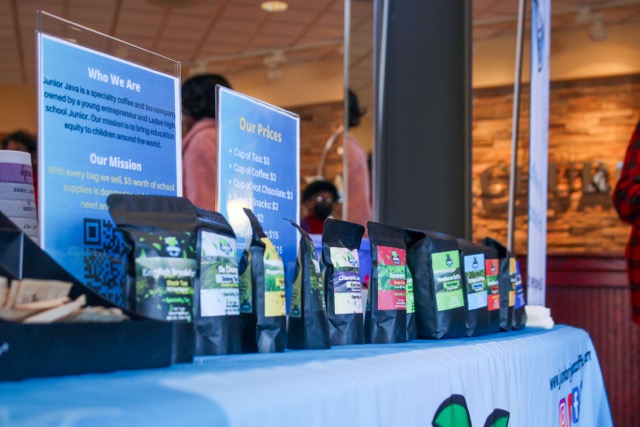
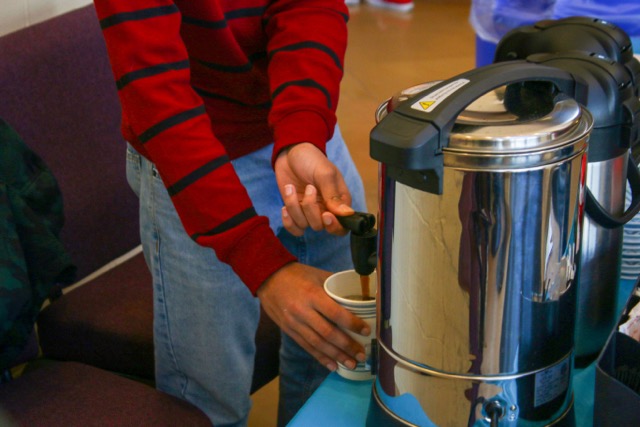
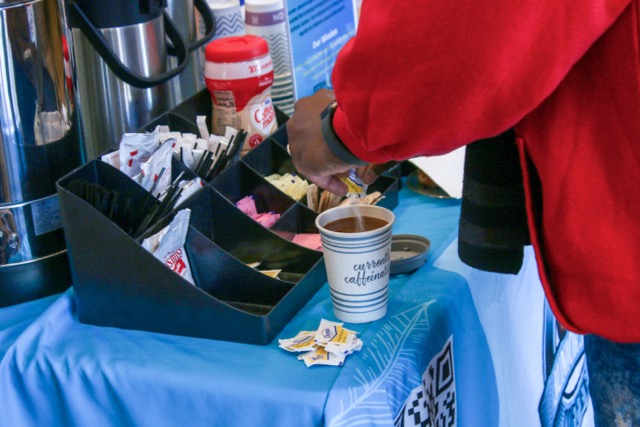
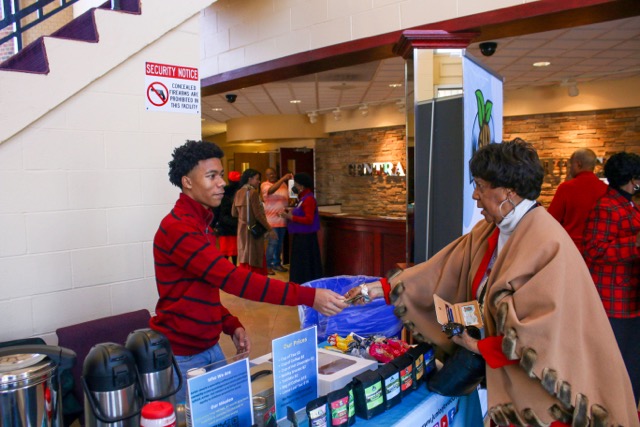
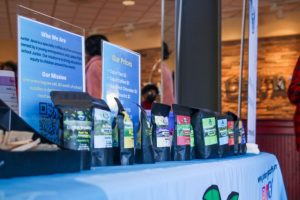
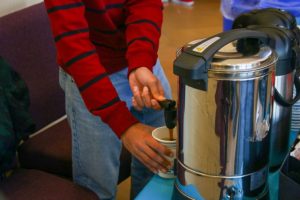
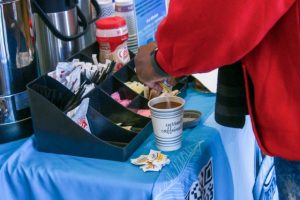
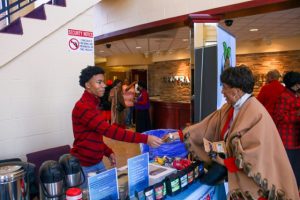


![School resource officer Rick Ramirez sits in his office. He usually spends little time in his office throughout his day of work, focusing on other issues. “Where our students are, I try to be,” Ramirez said. “Sometimes I get off at 2:45 p.m. when nothing’s going on, or sometimes I get off at 10 p.m. [Those are] my hours.”](https://laduepublications.com/wp-content/uploads/2024/12/Hsiao_20241203_ID_RickRamirez_007-799x1200.jpg)
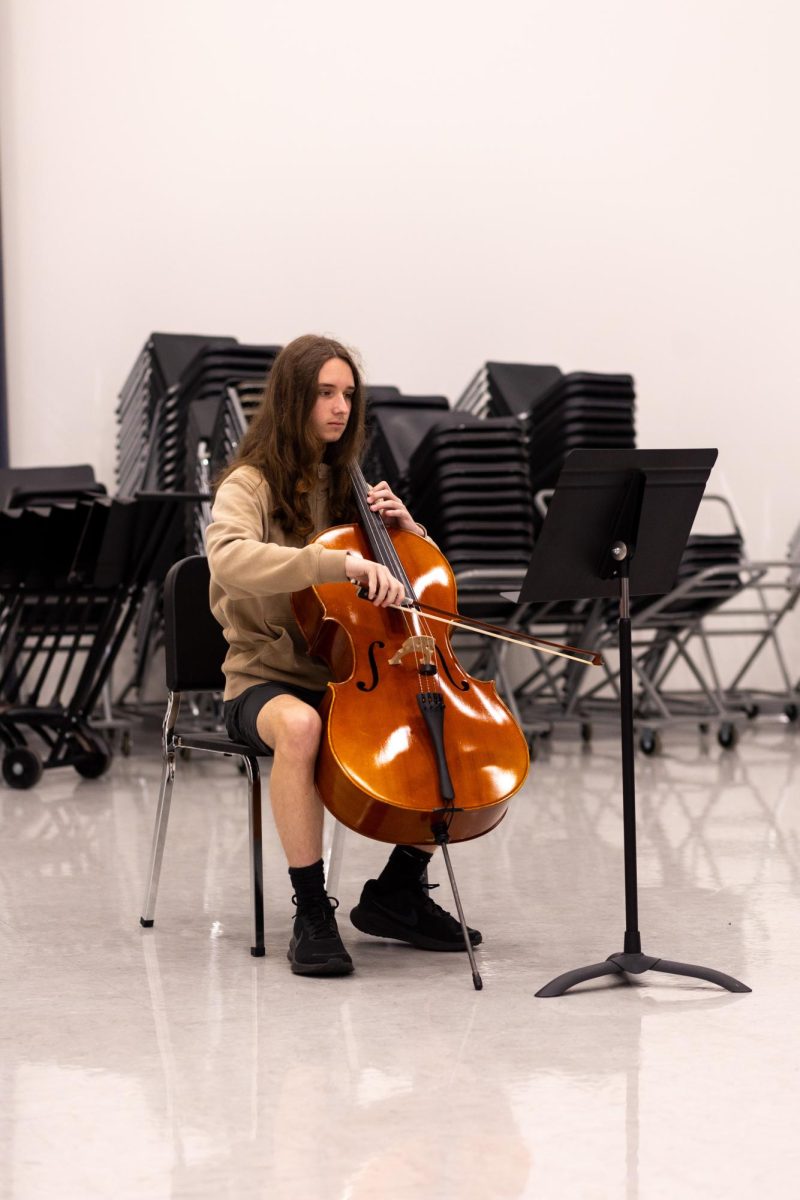
![Reva poses in front of her home and address plaque. After reuniting with her father and grandparents, she has made many new memories and retained her culture. “We have a lot of Indian cooking going on,” Reva said. “I also like telling people about Indian food, mainly because that’s something that really connects me to [Mumbai].”](https://laduepublications.com/wp-content/uploads/2024/12/At-Home-1200x799.jpg)

